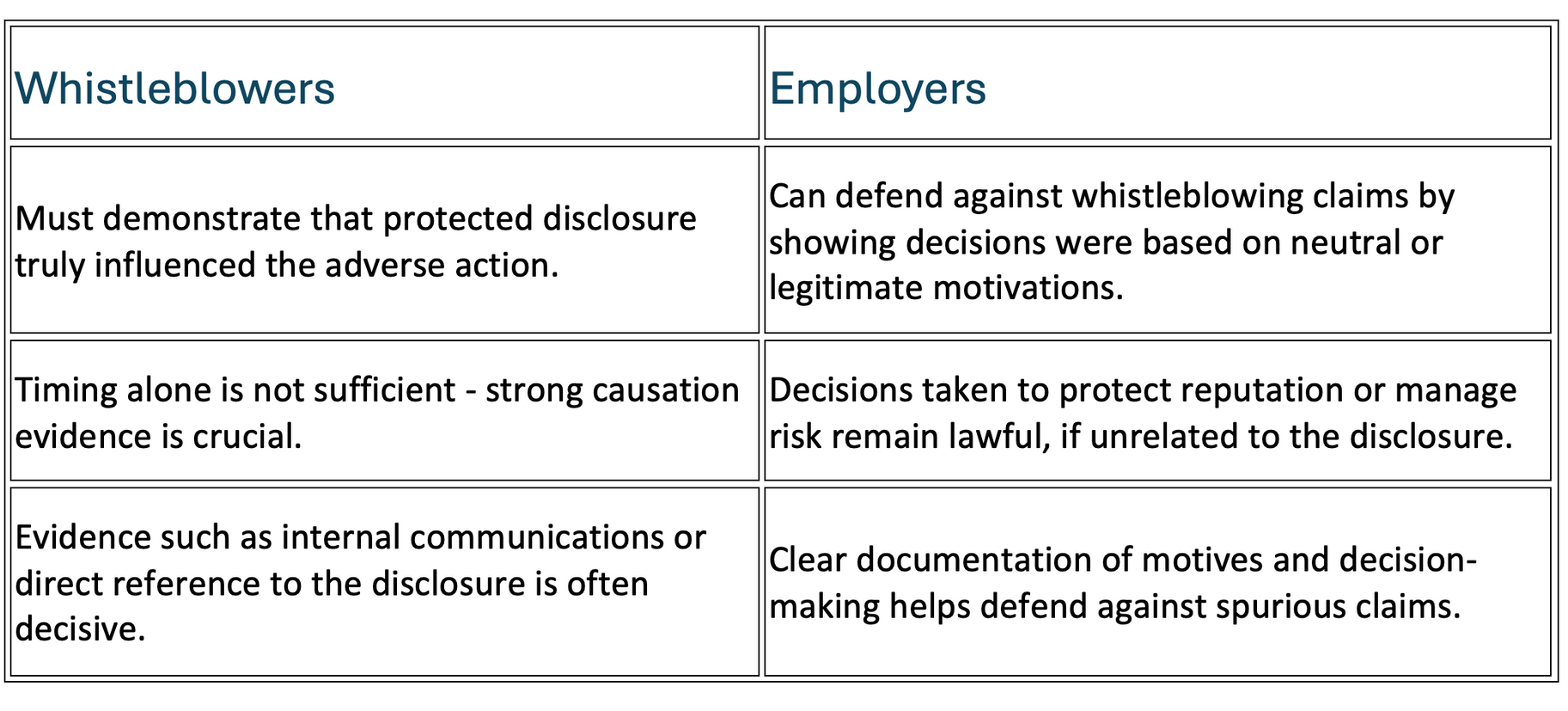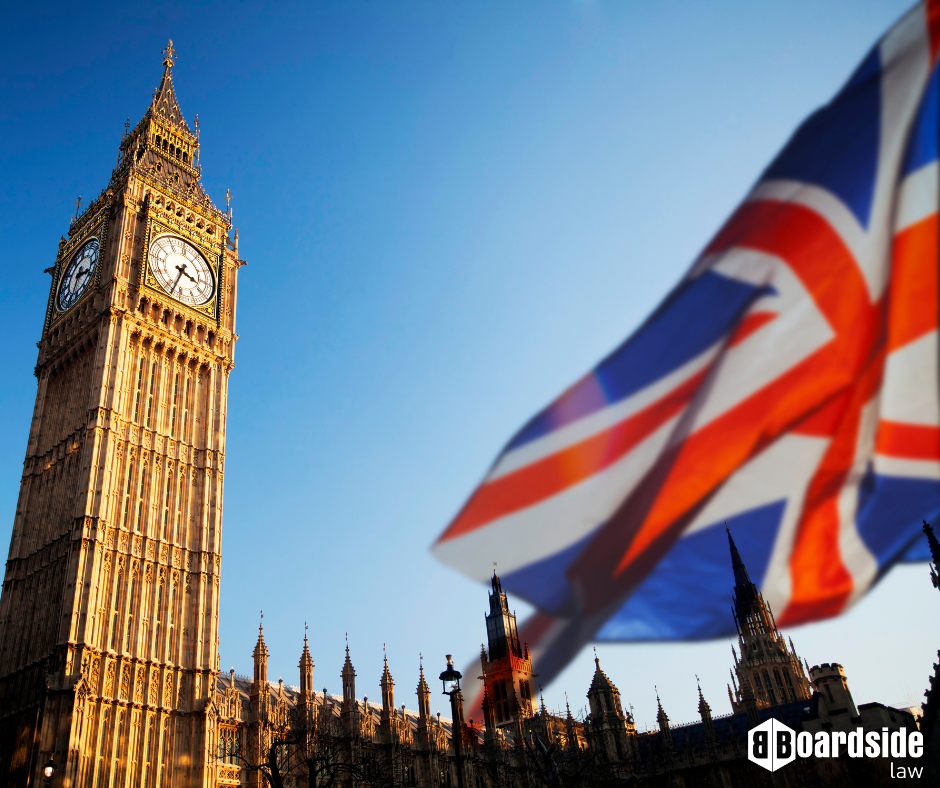Whistleblowing: Post-Employment Protections Clarified
Whistleblowing: Post-Employment Protections Clarified

In our recent article (Whistleblowing: Reform on the Horizon), we examined how whistleblowing rights are evolving and the growing responsibilities on employers to take disclosures seriously, especially in regulated and high-risk sectors. This month, we return to our whistleblowing theme, following a new Employment Appeal Tribunal judgment that clarifies how whistleblowing protections can continue even after the employment relationship ends.
In August 2025, the Employment Appeal Tribunal (EAT) delivered a pivotal judgment in the case of Day v Lewisham & Greenwich NHS Trust ([2025] EAT 123, which explores post-employment detriment, media pressure, and the continuing importance of causation in defending against protected disclosure claims.
Key Facts of the Case
Dr Christopher Day, a junior doctor, brought a whistleblowing detriment claim against Lewisham & Greenwich NHS Trust (the Trust), following a series of public statements made by the Trust in 2018 and 2019, after settling an earlier claim which Dr Day had initially brought in 2014. Dr Day alleged that the Trust’s post-settlement statements were detrimental, untrue and motivated by retaliation for protected disclosures made during his employment.
The Employment Tribunal found that:
- one of the Trust’s statements did constitute a detriment, but it was not caused by Dr Day’s protected disclosures;
- the remaining statements were either not detrimental or were true.
It also concluded that the claim fell outside the scope of whistleblowing protections under section 47B Employment Rights Act 1996, as the statements occurred after employment had ended.
EAT Ruling: causation must be more than timing
The EAT disagreed on the scope point. It held that post-employment whistleblowing claims can indeed be brought where the alleged detriment is closely connected to the individual’s former employment. In this case, the Trust’s statements (made after Dr Day’s employment had ended) related directly to earlier tribunal proceedings and to disclosures made by Dr Day while employed.
The EAT also said that the Tribunal should have considered whether the Trust’s refusal to amend or remove its statements (especially in light of CQC concerns) might itself have amounted to a fresh detriment.
However, these errors did not change the outcome. The EAT upheld the Employment Tribunal’s decision, confirming that temporal proximity alone is insufficient to establish causation in a whistleblower’s claim.
- The protected disclosures must have materially influenced the employer’s actions—mere timing or “coincidence” doesn’t meet the statutory standard under Section 47B of the Employment Rights Act 1996.
- The EAT found that the Trust’s actions were not materially influenced by Dr Day’s disclosures. Instead, the statements were driven by media scrutiny and a desire to present the Trust’s side of the story.
The appeal was therefore dismissed.
Implications for employers and whistleblowers

Boardside Law insight
This judgment reaffirms that the bar for whistleblowing causation remains intentionally high. Post-employment statements can fall within the scope of whistleblowing protections, but only if the detriment relates closely to the relevant employment. Motivation matters:
- Employers: should maintain robust, documented processes in how disclosures are responded to.
- Whistleblowers: bear in mind that evidence is key - your case must show clear linkage between what you said and how you were treated. In other words, the protected disclosure must materially influence the action(s) complained of.
If you are issuing press releases, public statements or even internal communications about past whistleblowing events, make sure that your rationale is clear, balanced and legally sound. Boardside Law can help you review communications and manage reputational risk before a problem arises.
Please share Boardside's expertise and insights with colleagues and associates. Thank you.
Working closely with you, we can navigate the hurdles you face, to build a stronger business and to achieve commercial advantage. Call us for an initial conversation on 0330 0949338










